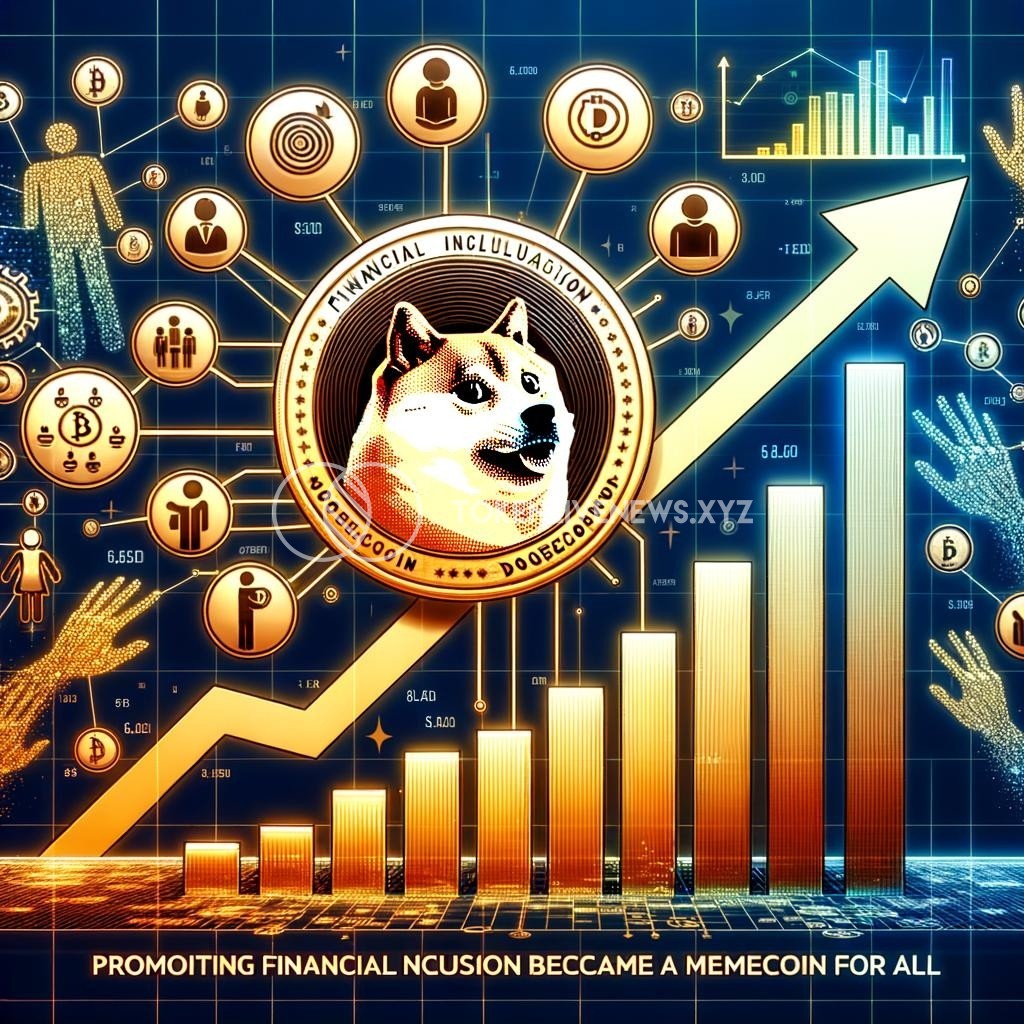Promoting Financial Inclusion: How Dogecoin Became a Memecoin for All
Over the past few years, cryptocurrencies have rapidly gained popularity as an alternative form of currency and investment. While Bitcoin and Ethereum dominate the market, another digital currency called Dogecoin has managed to carve out its own unique niche. Dogecoin, originally created as a joke, has become a symbol of financial inclusion and the power of online communities.
Dogecoin was introduced in 2013 by software engineers Billy Markus and Jackson Palmer. The cryptocurrency was initially developed as a lighthearted response to the growing hype surrounding Bitcoin. Its creators wanted to highlight the absurdity of the numerous altcoins that were being launched without any substantial purpose. Combining the likeness of the Shiba Inu dog from the popular “Doge” meme with a coin-based logo, Dogecoin was born.
Although Dogecoin started as a joke, it quickly gained traction and attracted a loyal community of supporters that embraced its fun and inclusive nature. The currency’s creators saw the opportunity to harness this grassroots following for charitable causes and began fundraising initiatives leveraging the power of Dogecoin’s community. In one notable campaign, the Dogecoin community raised enough money to sponsor the Jamaican bobsled team’s trip to the 2014 Winter Olympics.
The rise of Dogecoin as a memecoin for all is largely attributed to its accessibility and welcoming community. Unlike Bitcoin, which has seen skyrocketing prices and significant volatility, Dogecoin has always had a low entry barrier, making it attractive to novice cryptocurrency investors. The currency’s low cost per coin, combined with its strong online community, has cultivated an environment where people feel empowered to participate and engage in the world of cryptocurrency.
Another crucial factor contributing to Dogecoin’s popularity is the role of social media. As memes and viral content have become an integral part of internet culture, Dogecoin’s iconic Shiba Inu dog logo quickly spread across platforms like Reddit and Twitter, capturing the attention of millions. Elon Musk, the CEO of Tesla and SpaceX, publicly endorsed Dogecoin through his tweets and appearances on television shows, further fueling its widespread recognition.
The impact of Dogecoin on promoting financial inclusion cannot be understated. Traditional banking systems often exclude marginalized populations due to various factors such as high fees, strict documentation requirements, and limited accessibility. Dogecoin, with its low transaction costs and decentralized nature, provides an opportunity for individuals who are overlooked by traditional financial institutions to actively participate in the digital economy.
Furthermore, the charitable initiatives driven by the Dogecoin community exemplify the positive potential of cryptocurrencies. With the power of online communities at their disposal, Dogecoin supporters have proven that they can make a meaningful impact on a global scale. By collectively pooling their resources, Dogecoin enthusiasts have donated to causes ranging from disaster relief efforts to funding clean water projects in impoverished areas.
Promoting financial inclusion is a critical aspect of ensuring a fair and equitable society. Dogecoin, though born out of satire, has emerged as a catalyst for sparking conversations around the democratization of finance. Its welcoming community, low entry barrier, and charitable endeavors have propelled Dogecoin to the forefront of the cryptocurrency market, proving that sometimes a joke can transcend its origins and evolve into something meaningful. As we move forward, it will be fascinating to see how Dogecoin and other cryptocurrencies continue to redefine financial inclusion in the digital age.







